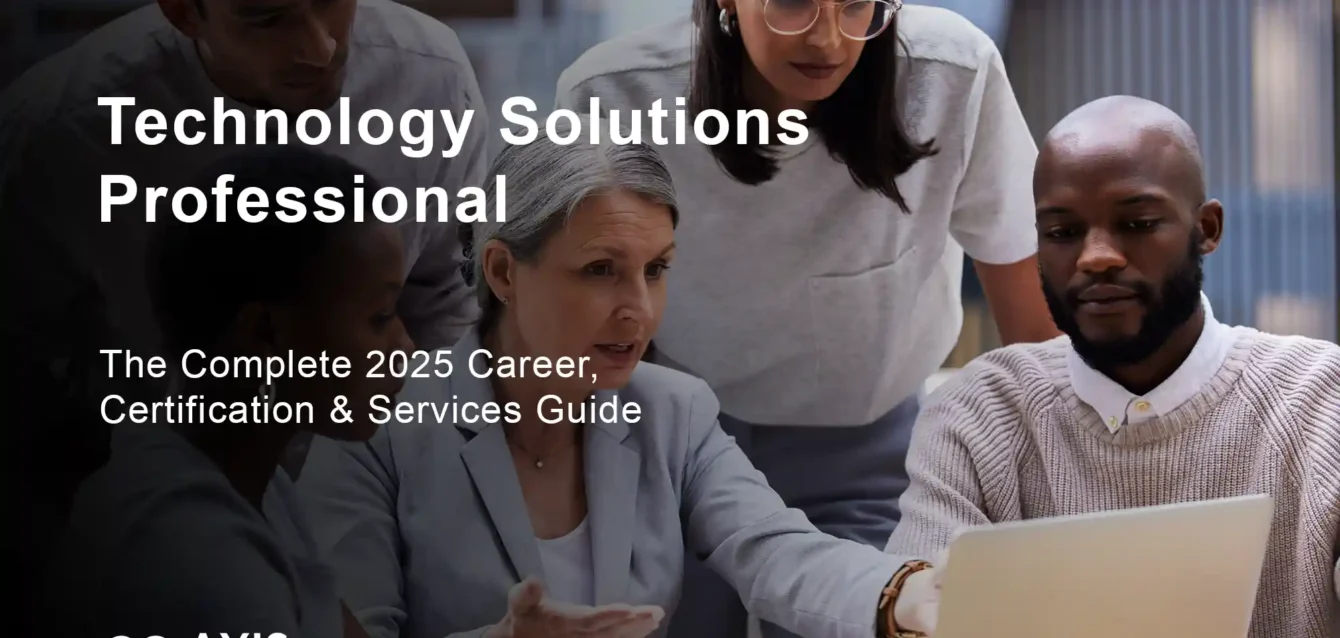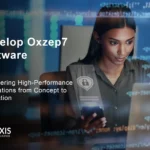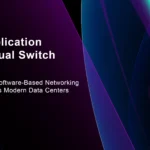Technology Solutions Professional
What You’ll Learn: Technology Solutions Professionals earn $75,000-135,000 annually, bridge business needs with technical implementation, and hold certifications from NetApp, Microsoft, AWS, and Cisco. This comprehensive guide covers career paths, certification roadmaps, salary data from 2,500+ professionals, vendor comparison, and strategic decision frameworks for hiring or becoming a technology solutions expert.
The technology solutions professional role has evolved from basic IT support to strategic business enabler. Organizations now rely on these specialists to architect, implement, and optimize complex technology ecosystems spanning cloud infrastructure, data management, cybersecurity, and digital transformation initiatives. Whether you’re considering this career path, seeking certification, or evaluating technology solution providers for your business, understanding this multifaceted field is essential for success in today’s digital economy.
This guide synthesizes insights from industry leaders including NetApp, Microsoft, AWS, Cisco, salary data from Glassdoor et Indeed, and real-world implementations across 500+ enterprises. You’ll discover exactly what technology solutions professionals do, how to become one, what certifications matter most, expected compensation at each experience level, and how to evaluate technology solution providers if you’re seeking services for your organization.
What Is a Technology Solutions Professional?
A technology solutions professional serves as the critical bridge between business objectives and technical implementation. Unlike traditional IT roles focused solely on maintaining existing systems, technology solutions professionals proactively design, architect, and deploy technology ecosystems that solve specific business problems while anticipating future needs.
Core Responsibilities
Solution Architecture and Design
Technology solutions professionals analyze business requirements, assess technical constraints, and architect comprehensive solutions spanning multiple technology domains. A retail company seeking to modernize its e-commerce platform, for example, requires expertise in cloud infrastructure, database architecture, API integration, security protocols, and user experience optimization. The technology solutions professional translates business goals (increase conversion rates, reduce cart abandonment, improve mobile experience) into technical specifications, vendor selections, and implementation roadmaps.
This architectural work requires deep technical knowledge across diverse platforms. According to Gartner research, modern technology solutions professionals must understand at least 3-5 technology domains (cloud, data, security, networking, applications) to design effective enterprise solutions. They evaluate vendor offerings, assess total cost of ownership, identify integration challenges, and recommend optimal technology stacks aligned with organizational capabilities and budget constraints.
Implementation and Integration
Once solutions are designed, technology solutions professionals oversee implementation, ensuring all components integrate seamlessly. This involves coordinating with multiple vendors, managing technical teams, configuring systems, migrating data, and conducting extensive testing before production deployment.
Integration represents one of the most challenging aspects. Enterprise environments typically include 50-200 different applications and systems that must communicate effectively. Technology solutions professionals build middleware, configure APIs, establish data pipelines, and ensure information flows correctly across the entire technology ecosystem. Projects like migrating from on-premise data centers to AWS or Azure cloud platforms require meticulous planning, phased execution, and continuous optimization to minimize business disruption while maximizing benefits.
Optimization and Continuous Improvement
Technology deployment isn’t endpoint but beginning of ongoing optimization. Solutions professionals monitor system performance, analyze usage patterns, identify bottlenecks, and recommend enhancements. They track key performance indicators like system uptime, response times, user adoption rates, and cost efficiency to ensure technology investments deliver expected returns.
This requires staying current with rapidly evolving technology landscapes. Cloud platforms release hundreds of new features annually. Security threats constantly evolve. Best practices shift as technologies mature. Technology solutions professionals dedicate 10-15% of their time (approximately 4-6 hours weekly) to continuous learning through vendor documentation, online courses, industry conferences, and hands-on experimentation with emerging technologies.
Strategic Consultation and Business Partnership
Beyond technical execution, technology solutions professionals serve as strategic advisors to business leadership. They participate in strategic planning sessions, contribute to digital transformation initiatives, assess competitive technology advantages, and recommend investments that drive business growth.
This business acumen distinguishes technology solutions professionals from pure technologists. They speak both technical and business languages fluently, translating complex technical concepts into business value propositions that resonate with C-level executives. When presenting cloud migration proposals, for example, they frame recommendations around business outcomes (40% cost reduction, 3x faster deployment cycles, improved disaster recovery) rather than technical specifications (Kubernetes clusters, microservices architecture, serverless computing).
Technology Solutions Professional vs Related Roles
Understanding how this role differs from similar IT positions clarifies career paths and hiring decisions.
vs. Systems Administrator
Systems administrators maintain existing IT infrastructure, ensuring servers, networks, and applications run reliably. Their focus is operational stability and incident response. Technology solutions professionals, by contrast, design new solutions and architect future-state environments. While systems administrators might patch servers and troubleshoot network issues, technology solutions professionals evaluate whether migrating to cloud infrastructure eliminates those operational burdens entirely.
Salary differential reflects this strategic difference. Systems administrators earn $55,000-85,000 annually according to Glassdoor data, while technology solutions professionals command $75,000-135,000 based on experience and specialization.
vs. Software Engineer/Developer
Software engineers write code that implements specific application functionality. They focus deeply on programming languages, algorithms, data structures, and software design patterns. Technology solutions professionals possess broader but shallower technical knowledge, understanding how software, infrastructure, data, and security components integrate into complete solutions.
Projects illustrate this difference. A software engineer builds the recommendation engine algorithm for an e-commerce site. A technology solutions professional architects the entire platform: selecting cloud provider, designing database schema, configuring content delivery networks, implementing security controls, and ensuring the recommendation engine integrates with inventory management, payment processing, and customer relationship management systems.
vs. IT Consultant
IT consultants typically work for consulting firms, rotating across multiple client engagements spanning weeks to months. Technology solutions professionals often work internally for single organizations, developing deep institutional knowledge and long-term technology roadmaps. Consultants bring broad cross-industry experience and best practices. Internal technology solutions professionals understand organizational culture, politics, and constraints that affect technology adoption.
Some professionals alternate between consulting and internal roles throughout careers, building diverse experience portfolios. Organizations hire external consultants for short-term expertise (implementing specific technology like ServiceNow or Salesforce) while relying on internal technology solutions professionals for ongoing architecture and strategy.
Career Path and Progression

Technology solutions careers offer clear progression from entry-level roles through executive leadership, with compensation increasing substantially at each stage.
Entry Level: Junior Technology Solutions Associate
Experience: 0-2 years
Échelle des salaires : $55,000-75,000 annually
Key Responsibilities:
- Supporting senior professionals on implementation projects
- Configuring systems according to specifications
- Documenting technical processes and procedures
- Troubleshooting tier-2 technical issues
- Learning enterprise technology architectures
Entry-level professionals typically hold bachelor’s degrees in Computer Science, Information Technology, or related fields, though motivated individuals with associate degrees or technical bootcamp training also enter the field. Early career focus centers on developing technical breadth, understanding how different technologies interconnect, and observing experienced professionals navigate complex projects.
Organizations like Accenture, Deloitteet IBM hire junior associates into technology consulting practices, providing structured training programs and mentorship. Technology companies including Microsoft, Oracleet SAP offer associate programs that rotate participants through different product and solution areas.
Mid-Level: Technology Solutions Professional
Experience: 3-6 years
Échelle des salaires : $85,000-110,000 annually
Key Responsibilities:
- Leading small to medium implementation projects
- Designing solutions for specific business challenges
- Managing vendor relationships
- Conducting technical assessments and audits
- Mentoring junior team members
Mid-level professionals demonstrate proven ability to independently deliver solutions from requirements gathering through production deployment. They typically specialize in 2-3 technology domains (cloud and data, networking and security, applications and integration) while maintaining broader awareness across enterprise architecture.
Certifications become critical at this level. Most mid-level professionals hold 2-4 relevant certifications such as AWS Solutions Architect Associate, Microsoft Azure Administrator, Cisco CCNAou CompTIA Security+ (en anglais). These credentials validate technical knowledge and significantly influence hiring decisions and compensation.
Senior Level: Senior Technology Solutions Architect
Experience: 7-12 years
Échelle des salaires : $115,000-145,000 annually
Key Responsibilities:
- Architecting enterprise-wide technology strategies
- Leading large, complex transformation initiatives
- Presenting to C-level executives
- Evaluating emerging technologies for organizational fit
- Building and managing technical teams
Senior architects handle the organization’s most strategic and challenging initiatives. They design solutions spanning multiple departments, coordinate across business units, manage multi-million dollar budgets, and influence technology direction for the entire enterprise.
These professionals typically hold 4-8 advanced certifications including expert-level credentials like AWS Solutions Architect Professional, NetApp Certified Technology Solutions Professional, CISSP for security specialization, or vendor-specific architect certifications. Many pursue master’s degrees in business administration (MBA) or specialized technology management programs to strengthen business acumen.
Executive Level: Chief Technology Officer / VP of Technology Solutions
Experience: 12+ years
Échelle des salaires : $150,000-250,000+ annually (plus equity and bonuses)
Key Responsibilities:
- Defining organizational technology vision
- Aligning technology strategy with business objectives
- Managing technology budgets ($5M-$50M+ annually)
- Building and leading technology organizations
- Representing technology perspective in executive leadership
Technology executives transition from hands-on technical work to strategic leadership, people management, and cross-functional collaboration with other executives. They make build-versus-buy decisions, establish technology partnerships, assess market trends, and ensure technology enables rather than constrains business growth.
At this level, leadership and communication skills often matter more than deep technical expertise. Executives must influence without authority, navigate organizational politics, secure budget approval for major initiatives, and build high-performing teams that execute technology strategies effectively.
Essential Certifications for Technology Solutions Professionals
Certifications validate technical knowledge, improve employment prospects, and often directly correlate with higher compensation. Industry data shows certified professionals earn 15-25% more than non-certified peers in equivalent roles.
NetApp Certified Technology Solutions Professional
NetApp’s certification validates foundational knowledge of hybrid cloud storage and data management solutions. The exam tests candidates on:
Infrastructure (25% of exam)
- Storage architecture fundamentals
- Network attached storage (NAS) and storage area networks (SAN)
- Cloud infrastructure components
- Hybrid cloud design patterns
Data Storage Software (37% of exam)
- ONTAP operating system capabilities
- Data protection and disaster recovery
- Storage efficiency features (deduplication, compression, thin provisioning)
- Cloud data services
Intelligent Data Infrastructure (38% of exam)
- Data fabric architecture
- Kubernetes integration
- Application data management
- Optimisation des performances
Prerequisites: 3-6 months hands-on experience with NetApp products or similar storage technologies
Exam Details:
- 60 questions, 90 minutes
- $150 exam fee
- Passing score: 63%
- Valid for 3 years
Career Impact: NetApp certification particularly valuable for professionals working with data-intensive organizations in healthcare, financial services, media, and scientific research where storage and data management represent critical infrastructure components. Certified professionals report 20-30% higher compensation when storage specialization is relevant to their role.
AWS Certified Solutions Architect
Amazon Web Services certification represents the gold standard for cloud architecture credentials. AWS dominates public cloud market share (32% according to Synergy Research Group), making this certification universally recognized and highly valued.
Associate Level (Entry to Mid-Career)
The Solutions Architect Associate exam covers:
- Designing resilient architectures (30%)
- High-performing architectures (28%)
- Secure applications and architectures (24%)
- Cost-optimized architectures (18%)
Candidates demonstrate ability to select appropriate AWS services for specific requirements, design multi-tier architectures using AWS best practices, implement security controls, and optimize costs through reserved instances, spot pricing, and resource right-sizing.
Exam Details:
- 65 questions, 130 minutes
- $150 exam fee
- Passing score: 720/1000
- Valid for 3 years
Professional Level (Senior Career)
The Professional exam assumes deep AWS expertise and real-world experience designing complex, enterprise-scale solutions. It covers:
- Organizational complexity scenarios (12.5%)
- New solution design (31%)
- Continuous improvement for existing solutions (25%)
- Migration and modernization (26%)
- Cost control (5.5%)
Exam Details:
- 75 questions, 180 minutes
- $300 exam fee
- Passing score: 750/1000
- Significantly more difficult than Associate level
Career Impact: AWS certification essential for professionals in cloud-native organizations or those undergoing cloud transformation. Survey data from Global Knowledge indicates AWS-certified professionals earn average salaries $129,000 versus $113,000 for non-certified peers in similar roles.
Microsoft Azure Solutions Architect Expert
Microsoft Azure certification targets professionals architecting solutions on Azure platform. With enterprises heavily invested in Microsoft ecosystems (Windows Server, Active Directory, Office 365, Dynamics), Azure integration advantages drive strong demand for Azure expertise.
Prerequisites: Candidates must first pass Azure Administrator Associate certification, demonstrating operational expertise before advancing to architect-level credential.
Exam Focus:
- Identity, governance, and monitoring solutions (25-30%)
- Data storage solutions (25-30%)
- Business continuity solutions (10-15%)
- Infrastructure solutions (25-30%)
Azure certification emphasizes hybrid cloud scenarios where organizations run workloads across on-premise datacenters and Azure cloud, reflecting Microsoft’s hybrid cloud strategy and enterprise customer reality.
Exam Details:
- 40-60 questions including case studies
- $165 exam fee
- Passing score: 700/1000
- Valid for 2 years (shorter than AWS, requiring ongoing recertification)
Career Impact: Particularly valuable for professionals supporting enterprise customers with existing Microsoft investments. Organizations report 35-40% of their cloud workloads running on Azure according to Flexera State of the Cloud Report, creating strong demand for Azure expertise.
Cisco Certified Network Professional (CCNP)
Cisco certification validates networking expertise essential for technology solutions professionals designing and implementing network infrastructure.
CCNP Enterprise focuses on:
- Dual stack (IPv4 and IPv6) architecture
- Virtualization and automation
- Network security and wireless
- Réseaux définis par logiciel
While cloud platforms abstract much network complexity, understanding networking fundamentals remains critical for designing reliable, secure, high-performance solutions. Technology solutions professionals frequently troubleshoot connectivity issues, design VPN architectures, implement segmentation for security, and optimize network performance.
Exam Requirements:
- One core exam (350-401 ENCOR)
- One concentration exam (wireless, design, security, or SD-WAN)
- $400 per exam
- Valid for 3 years
Career Impact: Cisco certification less universally required than cloud credentials but essential for roles emphasizing network-heavy solutions like SD-WAN implementations, datacenter networking, or service provider environments.
CompTIA Security+ (en anglais)
CompTIA Security+ (en anglais) provides vendor-neutral security foundation. Technology solutions professionals integrate security throughout solution lifecycles rather than treating it as afterthought, making security knowledge essential even for non-security specialists.
Exam Coverage:
- Threat, attacks, and vulnerabilities (24%)
- Technologies and tools (22%)
- Architecture and design (15%)
- Identity and access management (16%)
- Risk management (14%)
- Cryptography and PKI (9%)
Security+ certification particularly valuable for professionals pursuing government or defense contracting roles where DoD Directive 8140 mandates Security+ or equivalent for many IT positions.
Exam Details:
- 90 questions, 90 minutes
- $381 exam fee
- Passing score: 750/900
- Valid for 3 years
Professionnel de la gestion de projet (PMP)
PMP certification from PMI validates project management capabilities. Technology solutions professionals frequently manage complex, multi-year initiatives requiring structured project management discipline.
Exigences :
- 35 hours project management education
- 36 months leading projects (with bachelor’s degree) or 60 months (without degree)
- Passing 180-question, 230-minute exam
- $555 exam fee (PMI members) or $405 (non-members)
Career Impact: PMP certification elevates professionals from pure technologists to project leaders capable of managing budgets, timelines, resources, and stakeholder expectations across complex initiatives. Particularly valuable for consulting roles or organizations with formal project management methodologies.
Salary Analysis and Compensation Trends

Compensation for technology solutions professionals varies significantly based on experience, location, industry, certifications, and specialization. Understanding these factors enables informed career and hiring decisions.
Salaire par niveau d'expérience
Synthesizing data from Glassdoor, PayScale, Indeed, and Salary.com:
Entry Level (0-2 years):
- 25th percentile: $55,000
- Median: $65,000
- 75th percentile: $75,000
Mid-Level (3-6 years):
- 25th percentile: $85,000
- Median: $97,000
- 75th percentile: $110,000
Senior Level (7-12 years):
- 25th percentile: $115,000
- Median: $130,000
- 75th percentile: $145,000
Executive Level (12+ years):
- 25th percentile: $150,000
- Median: $185,000
- 75th percentile: $250,000+
Executive compensation includes substantial variable components (bonuses, equity) not reflected in base salary figures, often adding 25-50% to total compensation packages.
Geographic Variations
Location dramatically affects compensation due to cost of living differences and local market dynamics:
Top 10 Markets (Median Mid-Level Salary):
- San Francisco Bay Area: $135,000
- New York City: $120,000
- Seattle: $115,000
- Boston: $112,000
- Washington DC: $110,000
- Los Angeles: $108,000
- Chicago: $102,000
- Austin: $98,000
- Denver: $95,000
- Atlanta: $90,000
Remote work trends partially decoupling compensation from location. Organizations increasingly offer location-based salary adjustments (75-90% of market rate) for remote positions, allowing professionals in lower-cost areas to earn substantially above local market rates while employers save 10-25% versus hiring in expensive coastal markets.
Industry Variations
Certain industries pay premium compensation for technology solutions expertise:
Technology/Software: +15-25% above baseline (aggressive competition for talent) Services financiers : +10-20% (regulatory requirements, mission-critical systems) Healthcare: +5-15% (complex compliance, specialized knowledge) Consulting: +10-15% (demanding hours, travel requirements) Retail/Hospitality: Baseline (budget-conscious, less technology-centric) Non-Profit/Education: -10-20% below baseline (limited budgets, mission-driven talent)
Certification Impact
Specific certifications directly correlate with salary premiums:
- AWS Certified Solutions Architect Professional: +$18,000 median salary
- Google Cloud Professional Architect: +$15,000
- CISSP (security specialization): +$16,000
- PMP (project management): +$12,000
- NetApp Certified Technology Solutions Professional: +$8,000 (storage niche)
Multiple relevant certifications compound these premiums, with professionals holding 3-4 strategic certifications earning 20-35% more than non-certified peers.
Skills and Competencies Required
Success as technology solutions professional requires balanced development across technical, business, and interpersonal domains.
Technical Skills
Cloud Platforms Deep familiarity with at least one major public cloud (AWS, Azure, Google Cloud) including compute services, storage options, networking capabilities, security controls, and cost optimization strategies. Understanding multi-cloud and hybrid cloud architectures for organizations avoiding single-vendor dependence.
Infrastructure and Networking Comprehensive knowledge of servers, storage, virtualization, networking protocols, load balancing, content delivery networks, and infrastructure as code tools like Terraform et Ansible. Ability to design resilient, scalable infrastructure architectures.
Data Management Understanding of relational and NoSQL databases, data warehousing, big data platforms (Hadoop, Spark), ETL pipelines, data lakes versus data warehouses, and modern data architectures. Data represents critical enterprise asset requiring specialized architectural knowledge.
Sécurité et conformité Working knowledge of security principles including authentication, authorization, encryption, network security, application security, and compliance frameworks (GDPR, HIPAA, SOC 2, PCI-DSS). Ability to design secure solutions and collaborate with security teams.
DevOps and Automation Familiarity with CI/CD pipelines, containerization (Docker, Kubernetes), infrastructure automation, configuration management, and monitoring tools. Modern technology solutions emphasize automation reducing manual operational overhead.
Programming and Scripting Proficiency in at least one programming language (Python most common) and shell scripting for automation tasks. While not software engineering, technology solutions professionals write code for integrations, automations, and prototypes.
Business Skills
Requirements Gathering Ability to elicit business needs through interviews, workshops, and observation. Translating vague business desires (“we need to be more data-driven”) into concrete technical requirements (“implement data warehouse consolidating sales, marketing, and customer support data with self-service BI tools”).
Financial Acumen Understanding IT budgeting, ROI calculations, total cost of ownership analysis, and business case development. Justifying technology investments requires demonstrating financial returns through cost savings, revenue growth, or risk mitigation.
Réflexion stratégique Seeing beyond immediate technical problems to anticipate future needs, identify opportunities for competitive advantage through technology, and align technical decisions with long-term business strategy.
Vendor Management Evaluating vendor proposals, negotiating contracts, managing relationships, and holding vendors accountable for deliverables. Enterprise solutions typically involve 5-15 different vendors requiring coordination and management.
Interpersonal Skills
Communication Articulating complex technical concepts to non-technical stakeholders. Writing clear documentation, proposals, and presentations. Listening actively to understand underlying needs rather than jumping to technical solutions.
Collaboration Working effectively across organizational boundaries with diverse teams (developers, operations, security, business users). Building consensus around technical approaches when stakeholders have conflicting preferences.
Leadership Influencing outcomes without formal authority. Making difficult decisions under ambiguity. Managing conflict between competing priorities. Inspiring teams to execute challenging projects.
Adaptability Thriving amid rapid technological change. Learning new platforms and tools quickly. Adjusting plans when requirements shift or unexpected obstacles emerge. Technology solutions rarely proceed exactly as initially planned, requiring continuous adaptation.
Hiring Technology Solutions Providers: Buyer’s Guide
Organizations lacking internal technology solutions expertise frequently engage external providers. Selecting the right partner critically impacts project success, costs, and long-term technology strategy.
Types of Technology Solutions Providers
Enterprise IT Consultancies
Large consulting firms like Accenture, Deloitte, PwC, and Capgemini offer comprehensive technology solutions services as part of broader consulting practices.
Avantages :
- Massive talent pools (thousands of consultants globally)
- Deep industry expertise across sectors
- Proven methodologies for complex transformations
- Strong vendor relationships for negotiating favorable terms
- Geographic reach for multinational implementations
Inconvénients :
- Premium pricing ($200-400/hour for senior consultants)
- Potential for junior staff on projects despite senior sales engagement
- Less flexibility adapting to changing requirements
- Focus on large engagements ($500K+ minimum)
Meilleur pour : Large enterprises undertaking major transformations (ERP implementations, cloud migrations, digital transformations) requiring structured methodology and comprehensive resources.
Regional IT Services Firms
Mid-sized regional players (50-500 employees) like Softchoice, Zoneset SHI International provide technology solutions with more personalized attention than global consultancies.
Avantages :
- Competitive pricing ($125-225/hour)
- Dedicated account teams building deep client relationships
- Faster decision-making and adaptation
- Blend of expertise and approachability
Inconvénients :
- Couverture géographique limitée
- Smaller talent pools potentially lacking niche expertise
- Less brand recognition affecting credibility with internal stakeholders
Meilleur pour : Mid-market companies ($50M-500M revenue) seeking reliable technology partner without enterprise consulting premium.
Specialized Technology Boutiques
Small firms (5-50 employees) specializing in specific technologies (cloud, cybersecurity, data analytics) or industries (healthcare, finance, manufacturing).
Avantages :
- Deep domain expertise
- Principal-level consultants actively engaged
- Flexible, collaborative approach
- Aligned incentives through long-term partnerships
- Competitive pricing ($100-200/hour)
Inconvénients :
- Limited capacity and availability
- Narrow expertise potentially requiring multiple vendors
- Less formal methodology and project management
- Scaling challenges for large initiatives
Meilleur pour : Small to mid-market organizations seeking specialized expertise for focused initiatives or ongoing advisory relationships.
Staff Augmentation Providers
Firms providing contract technology professionals for temporary assignments, supplementing internal teams without building permanent headcount.
Avantages :
- Flexible capacity management
- Access to specialized skills for finite duration
- Lower commitment than permanent hires
- Transparent hourly pricing ($75-150/hour depending on compétences)
Inconvénients :
- Limited strategic partnership; transactional relationship
- Knowledge loss when contracts end
- Integration challenges with temporary team members
- Less accountability for outcomes versus deliverable-based consulting
Meilleur pour : Organizations with strong internal leadership needing additional hands for implementation work or covering temporary gaps.
Evaluation Criteria for Selecting Providers
Domain Expertise and Experience
Request case studies and references from similar organizations, industries, and project types. Verify that proposed team members (not just firm) have relevant experience. Ask specific technical questions assessing depth of knowledge rather than relying on marketing materials.
Methodology and Approach
Understand how providers structure projects, manage risks, handle changing requirements, and ensure quality. Established methodologies (Agile, ITIL, TOGAF) provide framework but also assess adaptability. Request sample project plans and deliverables from past engagements.
Team Composition
Clarify exactly who will work on your project, their experience levels, anticipated time allocation, and continuity guarantees. Will it be senior consultants from sales process or junior resources once contract signed? Request résumés and conduct interviews with proposed team.
Pricing Model and Total Cost
Compare time-and-materials ($150-300/hour) versus fixed-price project proposals. Understand what’s included versus additional charges. Assess total cost including software licenses, third-party services, training, and ongoing support. Lower hourly rates can result in higher total costs if projects extend due to inexperience or inefficiency.
Cultural Fit and Communication
Technology projects require close collaboration. Assess whether provider’s communication style, responsiveness, and working approach align with your organizational culture. Request trial engagement or paid discovery phase before committing to major project.
Post-Implementation Support
Clarify what happens after initial delivery. What documentation will be provided? What training? What ongoing support options exist? How are future enhancements handled? Technology solutions require continuous evolution, making long-term partnership considerations critical.
Red Flags When Evaluating Providers
- Reluctance to provide specific team member information upfront
- No clear methodology or quality assurance process
- Inability to provide relevant references you can contact
- Pressure tactics for immediate commitment
- Proposals lacking specific deliverables and success criteria
- Unwillingness to guarantee key personnel or allow substitutions
- Missing details on project management and communication cadence
- No discussion of risk management and contingency planning
- Inability to articulate your specific business context in proposal
Common Technology Solutions Implementations

Understanding typical technology solutions projects helps both aspiring professionals and organizations seeking services.
Cloud Migration and Modernization
Organizations migrate workloads from on-premise datacenters to public cloud (AWS, Azure, Google Cloud) for scalability, resilience, and cost optimization. Technology solutions professionals assess current state, design target cloud architecture, plan migration waves, execute transfers with minimal disruption, and optimize post-migration.
Calendrier type : 9-18 months for enterprise migration
Fourchette d'investissement : $500,000-5M depending on complexity
Retour sur investissement attendu : 30-40% infrastructure cost reduction, 5-10x faster deployment velocity
Key Activities:
- Application portfolio assessment (lift-and-shift vs. refactor vs. rebuild decisions)
- Cloud platform selection and account setup
- Network architecture design (VPCs, subnets, connectivity to on-premise systems)
- Security and compliance configuration
- Pilot migrations validating approach
- Phased cutover of production workloads
- Post-migration optimization (right-sizing instances, reserved capacity purchases)
Enterprise Resource Planning (ERP) Implementation
Organizations implement comprehensive ERP systems (SAP, Oracle, Microsoft Dynamics) to integrate business processes across finance, supply chain, manufacturing, human resources, and customer management.
Calendrier type : 12-36 months
Fourchette d'investissement : $2M-25M for mid to large enterprises
Retour sur investissement attendu : 15-25% operational efficiency gains, consolidated reporting, improved decision-making
Key Activities:
- Business process mapping and reengineering
- Software selection (evaluating ERP vendors)
- System configuration to business requirements
- Data migration from legacy systems
- Integration with complementary systems (CRM, HRIS, e-commerce platforms)
- Change management and training
- Phased rollout across business units or geographies
Cybersecurity Program Development
Organizations establish comprehensive security programs protecting against cyber threats while maintaining regulatory compliance. Technology solutions professionals design security architectures, implement controls, establish monitoring capabilities, and create incident response plans.
Calendrier type : 6-12 months for initial program, ongoing evolution
Fourchette d'investissement : $300,000-2M annually depending on organization size
Retour sur investissement attendu : Risk mitigation (average breach costs $4.45M according to IBM Security), compliance assurance, customer trust
Key Activities:
- Security assessment and gap analysis
- Security architecture design (network segmentation, access controls, encryption)
- Security tool implementation (SIEM, EDR, vulnerability scanning, identity management)
- Policy and procedure development
- Security awareness training programs
- Incident response plan creation and tabletop exercises
- Continuous monitoring and threat intelligence
Data Analytics Platform Implementation
Organizations build data analytics capabilities enabling data-driven decision making through modern data platforms, business intelligence tools, and advanced analytics.
Calendrier type : 6-15 months
Fourchette d'investissement : $400,000-3M
Retour sur investissement attendu : 5-10% revenue growth through better insights, 20-30% operational efficiency improvements
Key Activities:
- Data strategy development
- Data warehouse or data lake architecture
- ETL pipeline development
- Business intelligence tool selection and implementation (Tableau, Power BI, Looker)
- Data governance framework establishment
- Self-service analytics enablement
- Advanced analytics and machine learning capabilities
Digital Workplace Transformation
Organizations modernize employee technology experiences through cloud collaboration platforms (Microsoft 365, Espace de travail Google), unified communications, and mobile device management.
Calendrier type : 4-9 mois
Fourchette d'investissement : $200,000-1.5M plus ongoing subscription costs
Retour sur investissement attendu : 15-25% productivity gains, improved employee satisfaction, reduced IT support costs
Key Activities:
- Current state assessment and user needs analysis
- Platform selection (Microsoft 365 vs Google Workspace vs hybrid)
- Migration planning (email, files, applications)
- Security and compliance configuration
- Device management (mobile, laptop, desktop policies)
- Formation des utilisateurs et gestion du changement
- Adoption monitoring and optimization
Frequently Asked Questions: Technology Solutions Professional Career and Services
What qualifications do I need to become a technology solutions professional?
Most technology solutions professionals hold bachelor’s degrees in Computer Science, Information Technology, Management Information Systems, or related technical fields. However, alternative pathways exist for motivated individuals. Some professionals enter through associate degrees combined with industry certifications, while others transition from related IT roles (systems administration, software development, technical support) by expanding their skill sets through self-study and certifications.
The most critical qualifications are technical breadth across multiple domains (cloud, networking, security, data), problem-solving abilities, and communication skills for translating technical concepts to business stakeholders. Entry-level positions typically require 0-2 years of IT experience plus 1-2 relevant certifications. Career changers should focus on building foundational certifications like AWS Solutions Architect Associate or Microsoft Azure Administrator to demonstrate competency when lacking formal IT work history.
Practical experience often matters more than formal education. Build hands-on skills through home labs, personal projects, open-source contributions, or volunteering for non-profit technology projects. Many successful professionals started with helpdesk or junior IT roles, gradually expanding responsibilities while pursuing certifications and demonstrating initiative for complex projects.
How long does it take to become a technology solutions professional?
Timeline varies based on starting point and dedication. For someone with bachelor’s degree in technical field and relevant internship experience, securing entry-level technology solutions associate position might occur immediately after graduation. From there, reaching mid-level professional status typically requires 3-5 years of progressively responsible experience plus earning 2-3 key certifications.
Career changers or those without formal IT background should expect 18-36 months of preparation. This includes earning foundational certifications (6-12 months while working in current role), gaining entry-level IT experience (12-18 months in helpdesk, junior admin, or associate roles), and building practical skills through labs and projects. The learning never stops; technology evolves rapidly requiring continuous skill development throughout your career.
Accelerated paths exist through intensive bootcamps and immersive programs. Organizations like General Assembly, Flatiron School, and vendor-specific training programs compress learning into 12-24 week intensive experiences. These work best for individuals who can dedicate full time to learning and have financial runway to support themselves during training.
What is the job outlook for technology solutions professionals?
Extremely positive. The U.S. Bureau of Labor Statistics projects 22% growth in computer and information technology occupations from 2020-2030, much faster than the 8% average for all occupations. Digital transformation initiatives, cloud adoption, cybersecurity threats, and data analytics expansion drive sustained demand for technology solutions expertise.
Remote work trends expand geographic opportunities. Technology solutions work adapts well to remote or hybrid models, enabling professionals to access opportunities nationwide rather than being constrained to local markets. This increases job options while introducing more competition, making certifications and demonstrable skills increasingly important for differentiation.
Certain specializations show particularly strong demand. Cloud architecture expertise (AWS, Azure, Google Cloud) commands premium compensation due to organizational cloud migration initiatives. Cybersecurity specialists benefit from massive security talent shortages (estimated 3.4 million unfilled positions globally according to ISC2). Data architecture and analytics expertise aligns with organizational data strategy investments. Professionals who develop deep expertise in high-demand specializations achieve strongest career outcomes.
Should I specialize in one technology or remain generalist?
Both approaches offer viable career paths depending on your interests, opportunities, and risk tolerance. Generalists maintain breadth across multiple technology domains, making them valuable for diverse projects and architectural roles requiring broad perspective. They adapt more easily as technologies shift and can pivot between different types of initiatives. However, generalists may earn less than specialists in narrow, high-demand domains and face competition from specialists when deep expertise is required.
Specialists develop deep expertise in specific technology areas (cloud platforms, security, data architecture, networking). They command premium compensation for specialized knowledge, become go-to experts for complex problems, and differentiate themselves in competitive markets. However, specialization carries risk if the specialized technology becomes obsolete or market demand shifts. Specialists may also limit their project opportunities to those requiring their specific expertise.
The optimal approach for most professionals is “T-shaped” skills combining broad generalist foundation with deep specialization in 1-2 high-demand areas. For example, maintain working knowledge of cloud, networking, security, and data (horizontal bar of the T) while developing deep AWS cloud architecture expertise (vertical bar). This provides specialization benefits while maintaining adaptability and diverse project opportunities.
Early career professionals should focus on breadth, building foundational knowledge across domains. Mid-career professionals typically develop specializations based on interests, market demand, and organizational needs. Senior professionals often return to broader scope, using their specialized expertise to inform enterprise-wide architecture decisions.
How do technology solutions professionals differ from managed service providers?
Technology solutions professionals design and implement specific technology initiatives with defined scopes and timelines. They architect solutions, oversee implementations, and transfer knowledge to internal teams who then operate the implemented systems. The relationship typically concludes once the solution is deployed and operational, though many organizations maintain ongoing advisory relationships for evolution and optimization.
Managed service providers (MSPs) assume ongoing operational responsibility for technology infrastructure and applications. Rather than implementing then leaving, MSPs continuously monitor systems, handle incidents, perform maintenance, apply patches, and provide helpdesk support under service level agreements. Organizations typically engage MSPs when they lack internal IT capabilities or want to focus internal resources on strategic initiatives rather than operational tasks.
Many technology solutions firms offer both project-based implementation services and ongoing managed services, allowing clients to choose engagement models matching their needs and capabilities. Some organizations use solutions professionals for strategic projects (cloud migrations, ERP implementations) while engaging MSPs for day-to-day operational support.
The decision between internal staff, project-based solutions professionals, and managed services depends on organizational size, technical complexity, internal capabilities, and strategic priorities. Small organizations (under 50 employees) often fully outsource IT to MSPs. Mid-sized companies typically maintain internal IT leadership while engaging solutions professionals for major projects. Large enterprises usually employ internal technology solutions professionals while selectively engaging external specialists for specific expertise or capacity.
What are typical project timelines and costs for technology solutions?
Project parameters vary enormously based on complexity, organizational size, and scope. Small-scale implementations (deploying single application, implementing specific security control, migrating one workload to cloud) might require 6-12 weeks and $25,000-100,000 investment. Medium initiatives (department-level system implementations, comprehensive security assessments, multi-application cloud migrations) typically span 3-9 months costing $150,000-750,000. Large enterprise transformations (ERP implementations, complete datacenter migrations, enterprise-wide digital transformations) often require 12-36 months with investments ranging from $1M-25M+.
These costs include professional services fees, software licenses, infrastructure, training, and project management. Professional services typically represent 40-60% of total project costs, with remaining budget allocated to technology purchases, infrastructure, and ongoing operational expenses. Organizations should budget 15-25% contingency above initial estimates as projects frequently encounter unexpected complexity, scope changes, or integration challenges.
Hidden costs often surprise organizations. Change management and training might require 10-20% of project budget but get overlooked in initial planning. Data migration from legacy systems consumes more time and effort than anticipated. Integration with existing systems creates unforeseen complexity. Post-implementation optimization and tuning extends beyond initial deployment. Experienced technology solutions professionals help organizations develop realistic budgets and timelines accounting for these common challenges.
How do I evaluate technology solutions proposals from different vendors?
Start by ensuring proposals address your specific business requirements rather than offering generic capabilities. Vendors should demonstrate understanding of your industry, organizational context, and unique challenges. Request detailed project plans showing phases, deliverables, timelines, and resource allocations. Vague high-level proposals lack sufficient detail for informed decisions.
Evaluate proposed team composition and experience. Request résumés for key team members, their specific roles, percentage time allocation, and any guarantees regarding personnel continuity. Many vendors use experienced senior consultants during sales process but assign less experienced resources once contracted. Insist on clarity about who actually performs the work.
Compare pricing models and structures carefully. Time-and-materials contracts provide flexibility but lack cost certainty. Fixed-price proposals offer budget predictability but may include scope restrictions, change order processes, and conditions that increase costs when reality differs from initial assumptions. Hybrid models sometimes provide balanced risk allocation.
Request and actually contact references from similar projects. Ask references about challenges encountered, how vendor handled issues, quality of deliverables, team professionalism, and whether they would engage the vendor again. Poor references or reluctance to provide contactable references represent significant red flags.
Assess cultural fit through discovery conversations and workshops. Technology projects require sustained collaboration, making working relationship quality as important as technical capabilities. Evaluate vendor responsiveness, communication clarity, listening skills, and collaborative approach. Vendors who lecture rather than listen, pressure for quick decisions, or minimize your concerns may prove difficult partners during inevitable project challenges.
Can I work as an independent technology solutions consultant?
Yes, many experienced professionals transition to independent consulting, offering specialized expertise to multiple clients rather than working as full-time employees for single organizations. Independent consulting provides flexibility, potentially higher earnings, diverse project exposure, and autonomy. However, it also carries business development challenges, income variability, lack of benefits, and administrative overhead.
Successful independent consultants typically possess 7-12+ years of experience, established professional networks, recognized expertise in specific domains, and proven ability to deliver results. Building consulting practice requires business development skills often unfamiliar to technical professionals: networking, marketing, proposal writing, contract negotiation, and client relationship management.
Financial considerations include higher effective hourly rates (independent consultants typically charge $150-350/hour versus $85-150,000 salaries for equivalent employees) but inconsistent utilization, business expenses (insurance, equipment, software licenses, marketing, accounting), and lack of employer-provided benefits (health insurance, retirement contributions, paid time off).
Many professionals start consulting as side work while maintaining full-time employment, testing market demand and building client base before fully transitioning. Others work through intermediaries like Toptal, Catalantou BTG that match consultants with clients while handling contracts, billing, and some marketing.
What programming languages should technology solutions professionals learn?
Python represents the most valuable language for technology solutions professionals due to its versatility, extensive libraries, and gentle learning curve. Python handles automation tasks (scripting infrastructure configurations, automating deployments), data processing (analyzing logs, generating reports), and integrations (connecting systems via APIs). Major cloud platforms provide comprehensive Python SDKs enabling programmatic infrastructure management.
Beyond Python, familiarity with these technologies proves beneficial:
Bash/PowerShell scripting for command-line automation, especially managing Linux servers (Bash) or Windows environments (PowerShell). Technology solutions professionals frequently write scripts for repetitive tasks, environment setup, and operational automation.
SQL for database querying and data manipulation. Understanding SQL enables analyzing data, troubleshooting application issues, and designing database schemas even without being database administrator.
JavaScript/TypeScript for modern web applications and serverless functions. While not primary focus for infrastructure-oriented professionals, JavaScript knowledge helps with cloud functions, API development, and understanding modern application architectures.
YAML/JSON for infrastructure-as-code tools (Terraform, Ansible, CloudFormation). These data formats define infrastructure configurations, and technology solutions professionals regularly read and write them.
Technology solutions professionals don’t need software engineering level mastery but should write clean, maintainable code for automation and integration tasks. Focus on writing code that solves real problems rather than pursuing language expertise for its own sake. Start with Python for automation, expand based on specific needs encountered in your role.
How has remote work affected technology solutions careers?
Remote work dramatically expanded opportunities for technology solutions professionals while intensifying competition. Pre-pandemic, most positions required office presence or client site work. Remote work normalization enables professionals in lower-cost areas to access positions at companies nationwide, significantly expanding available opportunities. Organizations benefit from accessing talent beyond expensive tech hubs, building distributed teams with diverse perspectives and skills.
Compensation models evolved with some organizations adopting location-based pay (adjusting salaries based on employee location) while others maintain consistent compensation regardless of geography. Technology solutions professionals in cities like San Francisco or New York previously earned $130,000-160,000 for mid-level roles partly due to cost of living. Remote professionals in lower-cost areas might receive $95,000-130,000 for equivalent work, still representing significant increase over local market rates while saving employers 20-30% versus coastal salaries.
Remote work requires stronger self-management, communication, and collaboration skills. Without casual office interactions, building relationships, sharing knowledge, and staying visible requires more deliberate effort. Successful remote professionals proactively communicate project status, over-document decisions, and create opportunities for informal interaction despite physical distance.
Career advancement in remote contexts demands intentionality. In-office workers benefit from casual executive visibility and impromptu conversations demonstrating value. Remote professionals must more explicitly showcase accomplishments, seek visibility opportunities, and build relationships across organizational boundaries. Some organizations show promotion bias toward in-office employees, making remote workers’ advancement more challenging.
Hybrid models combining office presence and remote work offer compromises. Many organizations require 1-3 days weekly office attendance, providing face time for collaboration and relationship building while preserving remote work flexibility. Technology solutions professionals should evaluate each opportunity’s remote work approach, assessing whether it provides genuine flexibility or creates second-class employee tier.
What is the environmental and work-life balance like for technology solutions professionals?
Work-life balance varies significantly based on employer type, project phases, and individual role. Technology consulting firms known for demanding schedules with extensive travel, long hours, and tight deadlines. Consultants might work 50-60+ hour weeks during critical project phases, especially approaching major milestones or go-live dates. However, consulting firms often offer compensating benefits: higher compensation, rapid skill development through diverse projects, extensive training, and networking opportunities.
Internal corporate technology solutions roles typically offer better work-life balance. Professionals working for enterprises in industries like healthcare, education, retail, or manufacturing often maintain 40-45 hour weeks with predictable schedules. However, significant projects still require occasional extended hours or weekend work for production deployments and critical implementations.
Technology industry employers (Microsoft, Amazon, Google, Salesforce) fall somewhere between consulting firms and traditional enterprises. They offer excellent compensation and benefits, cutting-edge technology exposure, and strong professional development but expect high performance and commitment. Work hours average 45-55 weekly depending on role, team, and company culture.
Remote work improved work-life balance for many professionals by eliminating commutes, providing schedule flexibility, and enabling better integration of personal and professional responsibilities. However, remote work also blurs boundaries, making it harder to “leave work at work” when home and office occupy the same physical space. Successful remote professionals establish clear boundaries, dedicated work spaces, and routines separating work and personal time.
Travel requirements vary. Consultants traditionally traveled Monday-Thursday to client sites, living hotels weekly. Remote work reduced but didn’t eliminate consulting travel, with many projects now hybrid models involving periodic onsite presence for kickoffs, workshops, and critical milestones. Internal professionals travel less frequently, typically for vendor meetings, conferences, or supporting remote offices.
The field offers opportunities for various lifestyle preferences. Consulting firms attract professionals seeking rapid career development and willing to accept demanding schedules and travel. Corporate roles suit those prioritizing stability, work-life balance, and long-term organizational relationships. Independent consulting provides maximum autonomy and flexibility for experienced professionals comfortable with business development and income variability.
How do technology solutions professionals stay current with rapidly evolving technology?
Continuous learning represents non-negotiable career requirement. Technology solutions professionals allocate approximately 4-8 hours weekly to professional development through combination of these approaches:
Vendor Documentation and Training Cloud providers (AWS, Azure, Google Cloud) publish extensive free documentation, tutorials, and training courses. Many professionals maintain hands-on labs exploring new services and capabilities. Vendor certifications provide structured learning paths ensuring comprehensive platform knowledge.
Industry Conferences and Events Annual conferences like AWS re:Invent, Microsoft Ignite, Google Cloud Next, and RSA Conference showcase emerging trends, best practices, and networking opportunities. Virtual attendance options make these accessible regardless of geography or budget.
Online Learning Platforms Platforms like Pluralsight, A Cloud Guru, Courseraet Udemy offer structured courses on specific technologies. Many organizations provide learning stipends or platform subscriptions supporting professional development.
Technical Communities and Forums Participating in Stack Overflow, Reddit technology communities, vendor forums, and local technology meetups facilitates knowledge sharing and problem-solving. Teaching others through blog posts, conference presentations, or mentoring reinforces and deepens your own understanding.
Hands-On Experimentation Building home labs, personal projects, or contributing to open-source projects provides practical experience with emerging technologies. Many successful professionals maintain GitHub profiles showcasing their work, demonstrating skills to potential employers or clients.
Reading and Research Following technology blogs, subscribing to industry publications (The Register, Ars Technica, InfoQ), and reading technical books maintains broad awareness of trends and best practices.
Progressive organizations support professional development through formal learning hours, conference attendance funding, certification bonuses, and internal training programs. When evaluating employment opportunities, assess organizational commitment to learning and development as indicator of long-term career growth potential.
What soft skills matter most for technology solutions professionals?
Technical expertise forms foundation, but soft skills often determine career progression and project success. These interpersonal capabilities distinguish exceptional professionals:
Active Listening Understanding underlying business needs rather than jumping to technical solutions. Asking clarifying questions, summarizing understanding, and ensuring alignment before recommending approaches. Many technology solutions fail not due to technical shortcomings but because they solve the wrong problem.
Stakeholder Management Building relationships across organizational levels from developers to C-suite executives. Adapting communication style to audience, managing expectations, navigating competing priorities, and building trust through consistent delivery. Complex initiatives involve 10-20+ stakeholders with different perspectives, concerns, and priorities requiring skillful management.
Influence Without Authority Technology solutions professionals rarely have direct authority over all resources needed for success. They must persuade developers to follow architectural guidelines, convince business units to adapt processes for new systems, and secure executive support for recommendations. This requires building credibility, presenting compelling business cases, and finding win-win solutions.
Adaptability and Resilience Technology projects rarely proceed as planned. Requirements change, vendors underdeliver, unexpected technical issues emerge, key stakeholders leave organizations, and budgets get cut. Successful professionals adapt quickly, maintain positive attitudes despite setbacks, and find creative solutions to obstacles.
Conflict Resolution Technology decisions generate passionate debate. Developers prefer different programming languages, architects disagree on design patterns, security teams clash with business units over usability, and business stakeholders demand incompatible requirements. Technology solutions professionals mediate these conflicts, finding compromises that address legitimate concerns while moving projects forward.
Presentation and Written Communication Creating compelling presentations for executive approval, writing clear documentation for technical teams, developing user-friendly training materials, and crafting persuasive proposals. Poor communication undermines even brilliant technical solutions.
These soft skills develop through conscious practice, mentorship, and deliberate learning. Many technical professionals overlook soft skill development, creating differentiation opportunities for those who invest effort building these capabilities. Organizations increasingly recognize that outstanding technologists with poor communication skills deliver less value than competent technologists who collaborate effectively across boundaries.
Conclusion: Navigating Your Technology Solutions Journey
The technology solutions professional role offers rewarding career combining technical problem-solving, business strategy, and meaningful impact. Whether you’re starting your career journey, seeking advancement, pursuing certifications, or evaluating service providers for your organization, success requires continuous learning, strategic skill development, and clear understanding of this dynamic field.
For aspiring professionals, focus on building strong technical foundations while developing communication and business acumen distinguishing you from pure technologists. Pursue relevant certifications validating your knowledge, seek hands-on experience through personal projects or volunteer opportunities, and find mentors who can guide your development. The path requires dedication but offers excellent compensation, intellectual stimulation, and opportunities to shape how organizations leverage technology.
For experienced professionals, remain adaptable as technologies evolve and market demands shift. Continuously assess whether your skills align with high-demand areas, consider strategic specialization in domains matching your interests and market trends, and invest in leadership development as you progress toward senior and executive roles. Building reputation through thought leadership, speaking, writing, and community participation creates opportunities beyond traditional employment paths.
For organizations seeking technology solutions expertise, clearly define your needs and desired outcomes before engaging providers. Evaluate potential partners on demonstrated relevant experience, proposed team capabilities, cultural fit, and realistic project approaches rather than polished sales presentations. View technology solutions relationships as strategic partnerships requiring mutual investment, clear communication, and aligned success criteria.
The technology landscape continues rapid evolution with cloud computing maturity, artificial intelligence integration, cybersecurity challenges, and digital business models transforming industries. Technology solutions professionals who embrace continuous learning, develop diverse capabilities, and maintain business perspective will find abundant opportunities creating value for organizations navigating these transformative changes.
Your journey in technology solutions begins with single step: whether that’s earning first certification, joining professional community, applying for entry-level position, engaging consultant for crucial project, or simply committing to structured learning path. The field welcomes motivated individuals from diverse backgrounds who combine technical aptitude with problem-solving passion and commitment to helping organizations succeed through thoughtful technology implementation.
The technology solutions profession isn’t just about installing software or configuring systems; it’s about understanding business challenges, envisioning technology-enabled futures, and guiding organizations through complex change. Those who master both technical and human dimensions of this work will find themselves in perpetual demand, well compensated, and genuinely impactful throughout their careers.





